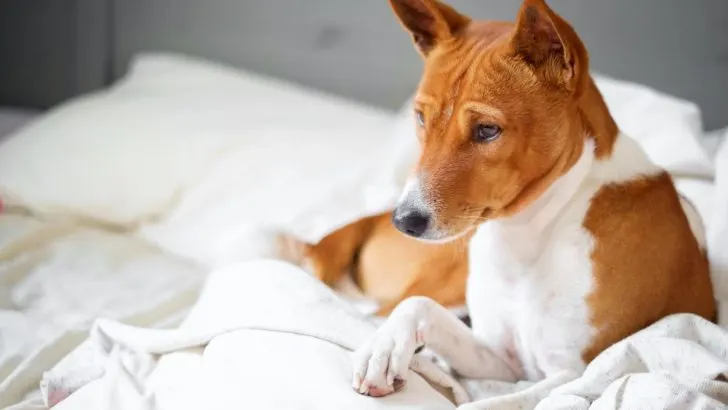Aren’t Basenjis adorable?! If you’re looking to become a new pet owner, the Basenji growth chart might be just what you need!
A height and weight chart can help with so many things. First and foremost, it can help you determine whether a certain dog breed is the right size for you. Secondly, it’s a great indicator of a dog’s overall health.
Basenjis are gorgeous canines that, unfortunately, aren’t as popular as some other dog breeds. Finding information about their size and healthy development might not be as straightforward as is the case with some more well-known doggies.
This is why I’m here to help!
Here is everything you need to know about the average size of Basenji dogs, as well as how to know whether your pooch is at a healthy weight.
Basenji Growth Chart
| Age | Weight | Height |
|---|---|---|
| 1 month | 3 – 6 lbs | 7 – 10 ins |
| 2 months | 6 – 10 lbs | 8 – 11 ins |
| 3 months | 8 – 14 lbs | 9 – 12 ins |
| 4 months | 10 – 18 lbs | 10 – 13 ins |
| 5 months | 12 – 22 lbs | 11 – 14 ins |
| 6 months | 14 – 26 lbs | 12 – 15 ins |
| 7 months | 16 – 30 lbs | 13 – 16 ins |
| 8 months | 18 – 34 lbs | 14 – 17 ins |
| 9 months | 20 – 38 lbs | 15 – 18 ins |
| 10 months | 22 – 42 lbs | 16 – 19 ins |
| 11 months | 24 – 46 lbs | 17 – 20 ins |
| 12 months | 26 – 50 lbs | 18 – 21 ins |
Basenji Puppy Growth Patterns
It’s important to note that every individual dog grows at its own rate. Also, the growth of a Basenji female might differ a bit from that of a Basenji male.
Still, there are some growth patterns that can be followed in order to understand whether your pup is growing properly.
Basenjis are medium-sized dogs. This means they grow faster than some larger dogs, such as Boerboels, for example.
Their average height is anywhere between 18 and 21 inches, and their weight shouldn’t go much over 50 lbs.
If you notice your pooch’s growth rate slightly differs from the one listed above – don’t panic. Some dogs are late bloomers, and your pup might yet reach its growth spurt.
Either way, here is what you can expect:
0-4 Weeks
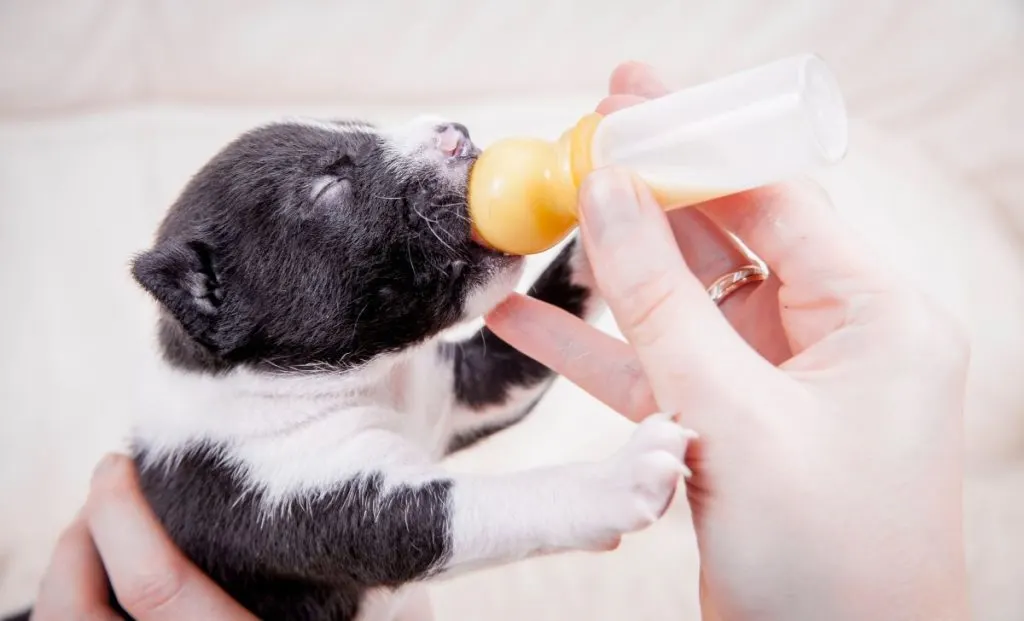
Throughout the first few weeks of their lives, Basenji puppies are blind, deaf, and entirely dependent on their mothers to survive. They’ll drink their mother’s milk to survive, and they need to stick to her to stay warm.
Your Basenji puppy isn’t likely to do much throughout this time. They’ll spend most of their wakeful time eating, and they’ll sleep the rest of the day. This helps their bodies and brains focus on development.
Most Basenji puppies will open their eyes by the end of the second week or during the third week.
It’s essential to monitor their growth during this time. Sometimes, your dog might have a runt of the litter, and this tiny puppy might need your help to survive.
1-2 Months

By this time, puppies should be entirely wary of their surroundings. They’ll become more curious and start exploring the world around them. Still, no professional breeder should allow you to take your pup home just yet.
Most Basenji pups will wean off their mother’s milk when they’re around four weeks old. This is the time when you should start giving them puppy food.
Start by giving them small portions of puppy food and monitor their food intake. This transitional period might last for a while, but your Basenji pup should quickly realize that solid foods taste much better than their mother’s milk.
Basenjis are active dogs but don’t expect to train them yet. Their focus will be spread everywhere, and they’ll have a hard time understanding your commands.
However, you should start with the socialization process and introduce them to new sights, smells, and sounds.
2-3 Months

Finally, this is the time when most owners should be allowed to take their new puppy home!
By the time a puppy is eight to ten weeks old, it should be developed enough to be separated from its parents. Also, all young Basenjis should take their first rounds of shots and deworming medication during this period.
Most notably, your Basenji is likely to go through a growth spurt during this time. It might seem as if it is growing every day!
Monitor your puppy’s weight gain as often as possible. While Basenjis can be picky eaters, some might still overeat, and this can result in a fat puppy, which is never a good thing.
3-6 Months
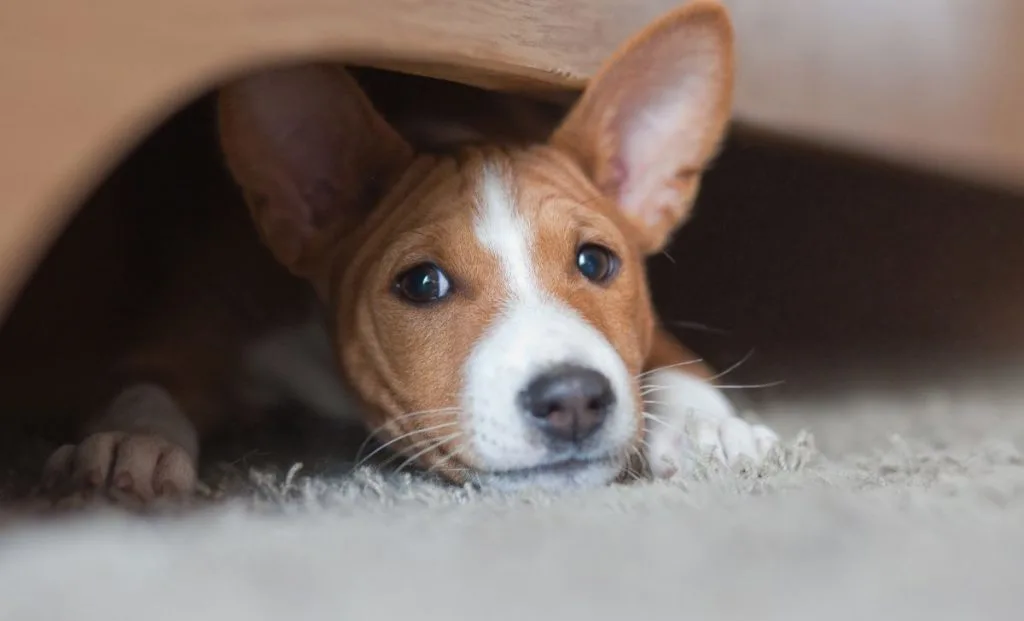
This is the right time to start training your dog!
During this period, your Basenji is likely to behave as a teenager.
This is also one of those awkward stages when he’ll resemble a small dog rather than a puppy, and he’ll still keep on growing extremely fast – although the growth rate is likely to start slowing down when your pup is four months of age.
Between the fourth and fifth months of their lives, you should start switching from puppy to adult dog food.
This transitional period can be very hard on your pup’s sensitive stomach. To help him get used to the new diet, try mixing small portions of adult food with puppy food and slowly increase the amount as time passes.
By doing this, you are reducing the chances of food sensitivities and allergies. Not to mention, this will make your pup love the food more!
6-12 Months
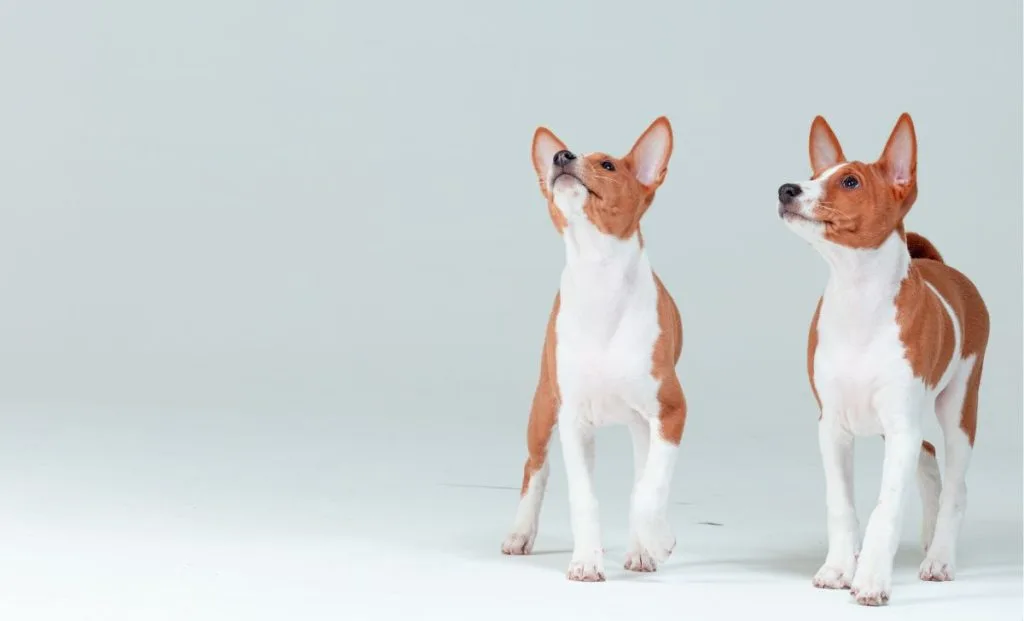
When they are around six months old, Basenjies will reach maturity. This means it’s time for spaying and neutering!
They should be fully socialized, and their training should be in full power.
A healthy Basenji should reach his full size before his first birthday. He should also entirely switch to proper wet or dry food suitable for medium to small dogs.
Keep in mind that some Basenjis might grow a tiny bit even after they reach 12 months of age. However, this is most likely due to weight gain and changes in his muscle tone rather than actual growth.
Factors That Affect Growth
As mentioned before, not all puppies grow at a similar rate – although healthy individuals should fall within the range given to you in the Basenji growth chart.
Some of the factors that might positively or negatively affect your pup’s growth rate include:
- Genetics. Most of the largest individuals have large parent dogs that are on the upper scale of the breed standard. While genetics can be challenging to predict, there are several dog DNA tests that can help determine just how big your pup will be. Ask your local veterinarian about these tests.
- Proper diet. Good nutrition is very important for proper development and brain activity. Look for the kind of diet that suits small to medium dogs the best. Some people like to give their Basenjies food suitable for the smallest sizes of dogs, but I wouldn’t do this. This ancient breed requires a specific amount of essential nutrients that aren’t found in most small dog foods
- Physical activity. Dogs need to be active to ensure good bone development. At the same time, if they are overly active, this can lead to joint problems. Don’t take your Basenji pup to long walks and hiking sessions before he is at least six months old.
- Spaying and neutering. Research has shown that fixing your dogs too early can impact their size. Without proper sex hormones, your dog might grow taller than the breed standard. Most Basenji owners love these pups due to their fairly compact size, so this is something to keep in mind.
- Health condition. Certain health issues can impact the height and weight of a dog. This includes parasites, infections, and diseases such as inflammatory bowel disease (IBD).
Don’t skip on the dog’s weighing and check whether your dog is of the correct weight. If you notice the numbers are off, it might be a good idea to check with your vet and rule out some severe health problems.
Common Problems Of Obesity
Did you know that a staggering half of dog population is obese? Well, you do now!
If your pup doesn’t get a balanced diet and enough exercise, he might become overweight.
Basenjis aren’t dogs that are as prone to obesity as some other breeds, such as Labrador Retrievers. However, this doesn’t mean you shouldn’t monitor how much carbs and fat they intake and keep them as healthy and fit as possible.
No, it isn’t about looks. Obesity can lead to many Basenji health issues, such as bone and joint problems, heart issues, or diabetes.
A Basenji growth chart is a good way to check your pup’s weight and ensure he is the right size.
Measure your pup’s weight regularly, spend lots of time playing with him, and don’t go overboard with treats.
Having a pup that is of the correct size is a sign you have a happy and healthy dog. Isn’t this what every owner wants?
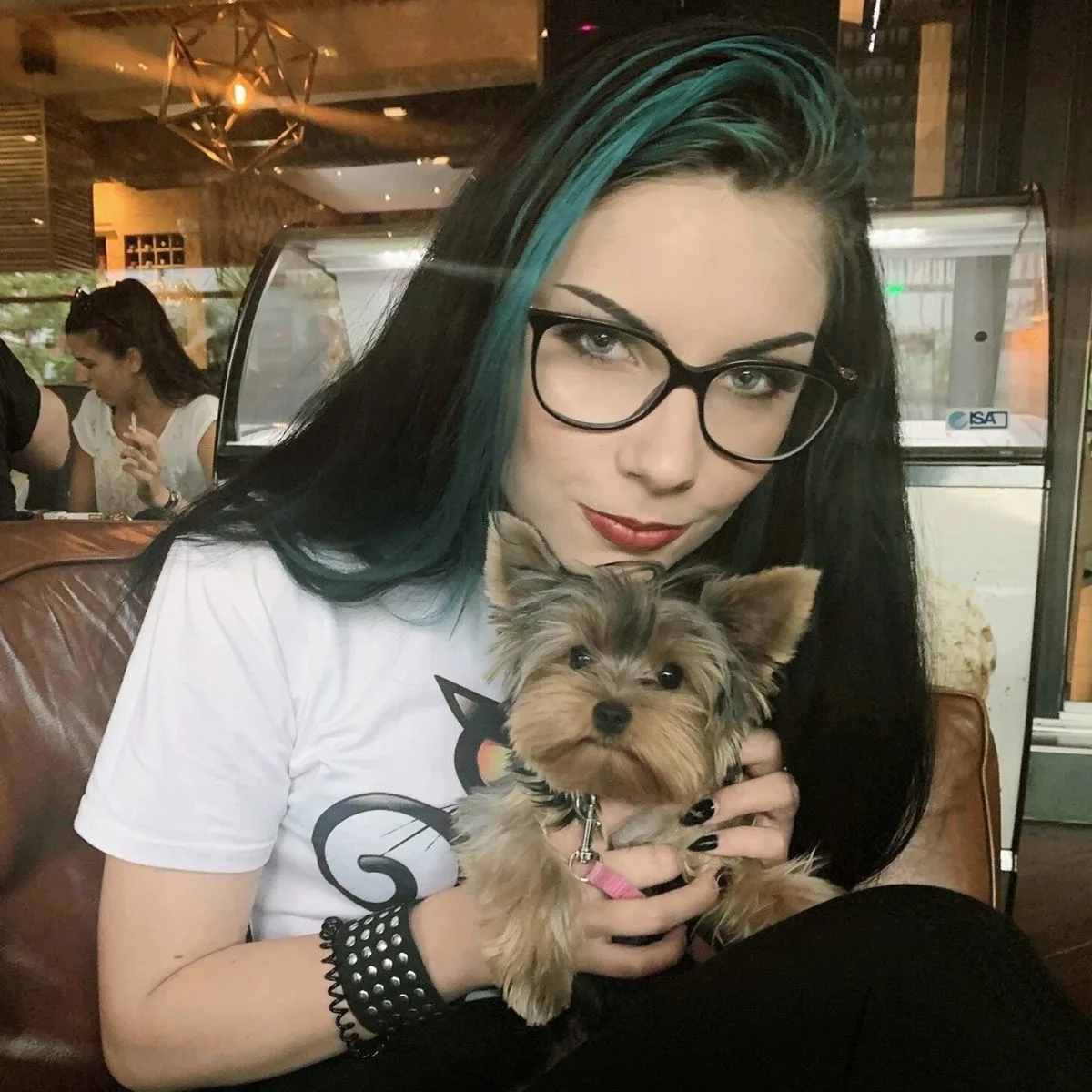
Vanja’s passion for writing started at an early age, which is why she pursued Journalism as her college degree. She can research any topic and find all the information before you bat an eye, which is a great thing for her job but a terrible one for her husband.
Even as a young child, she fell in love with everything fluffy – but dogs have a special place in her heart due to her childhood companion, a Corgie named Archie.
Motivated by her experiences and driven by a desire to give back to her four-legged companions, she spends her free time volunteering at a local dog shelter.
